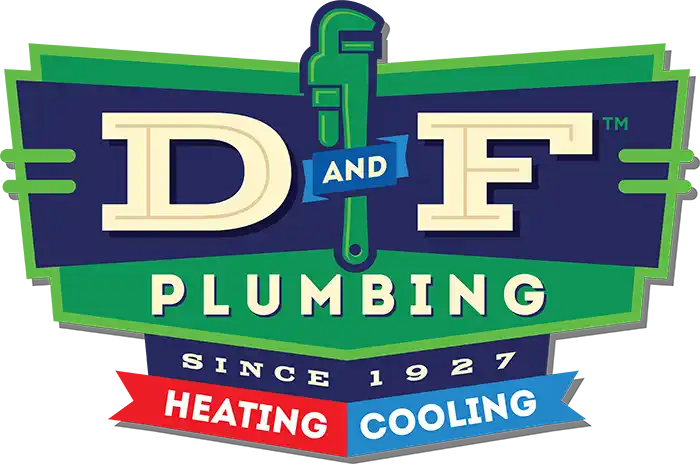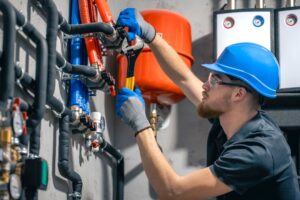New construction plumbing plays a vital role in the functionality, efficiency, and comfort of commercial properties. Navigating the complexities of planning, designing, and installing plumbing systems in a new building may seem overwhelming, but a comprehensive understanding of the process can significantly ease your concerns.
Are you planning to construct a new commercial property? If yes, you must know that plumbing design, material selection, code compliance, scheduling, and budgeting are some of the essential aspects you need to consider. All these sound daunting, so continue reading because we are here to help.
Pre-Construction Planning and Design
The first step in any new construction plumbing project for a commercial property is thorough planning and a strategic design. During this phase, it’s crucial to evaluate the building’s layout, intended usage, and any specific plumbing requirements unique to your property. Working closely with architects, engineers, and other stakeholders, we develop a comprehensive plan to ensure seamless integration of plumbing systems and components throughout the building.
As part of the pre-construction planning and design, it’s essential to consider factors such as the selection of pipe materials, the location of water and gas lines, drain-waste-vent (DWV) systems, and fixture installations. Planning for these elements in advance ensures proper coordination with the overall construction timeline, avoiding costly delays or complications during later stages of the project.
Material Selection and Code Compliance
Selecting the right materials for your commercial plumbing project plays a critical role in ensuring the longevity, efficiency, and safety of your plumbing system. When it comes to pipe materials, options such as copper, PVC, CPVC, or PEX each have their specific advantages and drawbacks. It’s essential to choose materials that best fit the requirements of your project while considering factors like durability, ease of installation, and cost.
Maintaining compliance with plumbing codes and regulations is another crucial aspect of new construction plumbing for commercial properties. Adhering to local, state, and federal plumbing codes ensures that your building meets safety and efficiency standards. This compliance will protect occupants, prevent unnecessary expenses from non-compliance fines or remediation, and preserve the reputation of your business.
Scheduling and Budgeting
Construction projects can be complex and time-consuming endeavors, and plumbing is just one component that needs to be carefully managed and coordinated with other aspects of construction. It’s critical to develop a detailed schedule that outlines each phase of the plumbing work, from material procurement to installation and testing. This schedule should be integrated with the overall construction timeline to ensure all parties are working together efficiently and that project deadlines are met.
Creating and maintaining a detailed budget for your plumbing project is essential for controlling costs and ensuring that your investment yields a return. Having a comprehensive budget not only helps you track expenses but will also allow you to forecast costs and make informed decisions when selecting materials or service providers.
Installation and Quality Control
A well-executed plumbing installation process is critical to the overall functionality of the commercial building. During the installation phase, our team will carefully follow the pre-determined plan to install pipes, fixtures, and equipment according to code requirements and design specifications.
Quality control measures should be enacted throughout the installation process. This includes regular inspections of the workmanship and materials to ensure adherence to the highest industry standards. These inspections help prevent any inconsistencies or errors that may lead to costly repairs or system failures in the future.
Preventive Maintenance and Ongoing Support
Once your commercial plumbing system is installed and operational, it’s vital to establish a proactive maintenance plan to keep it running smoothly and efficiently. Regular maintenance helps prevent potential issues such as clogs, leaks, or equipment failure, extending the lifespan of your plumbing system and reducing overall operating costs.
Our team’s preventive maintenance services include periodic inspection of key components such as water heaters, pumps, and backflow prevention devices, as well as cleaning and flushing of drain lines, water lines, and sewer systems. By investing in ongoing maintenance and support, you’re protecting your commercial property from avoidable plumbing issues and ensuring the integrity of your plumbing system.
The complex nature of new construction plumbing for commercial properties requires careful planning, design, and execution to ensure the final result meets your expectations. By following a methodical approach that encompasses material selection, code compliance, scheduling, budgeting, installation, and ongoing maintenance, your commercial property’s plumbing system can be built to last and support the daily demands of your business activities. Emphasizing collaboration and clear communication, our first-person team will guide you and your project to a successful outcome.
Ensuring Success with Professional Plumbing Expertise
The complexities of new construction plumbing for commercial properties demand meticulous attention to detail, comprehensive planning, and expert guidance throughout the process. Investing in professional plumbing expertise from our reliable team means you gain access to valuable industry knowledge, resources, and support that ensures the seamless and efficient execution of your project.
Don’t leave anything to chance – choose the right partner for your new construction plumbing needs. Contact us at D&F Plumbing, Heating and Cooling now to discuss your project and learn how we can help you create a reliable, efficient, and long-lasting plumbing system for your commercial property. Let’s work together to bring your vision to life.




